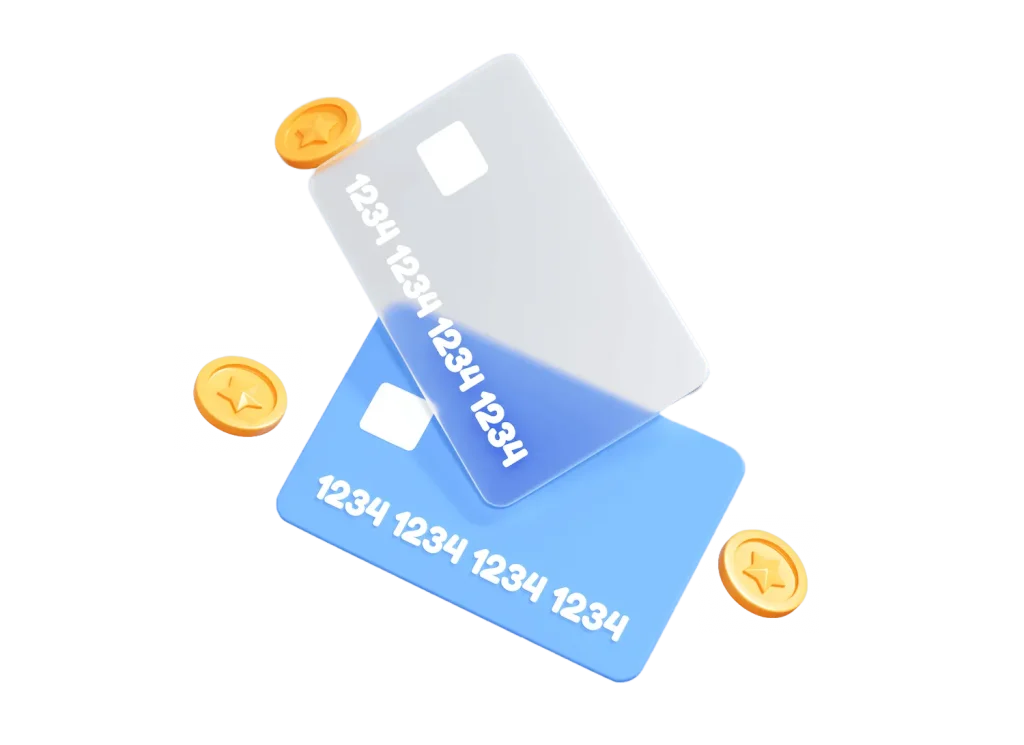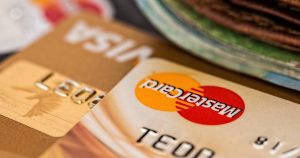
Credit cards can be lifelines for people, helping them make emergency purchases. Applying for a credit card can also help you build your score and access more borrowing options in the future.
Many people choose them because of the added fraud protection, with companies such as Mastercard offering a range of safety and security features. Unfortunately, not everyone is eligible for a credit card, and being turned down is a frustrating experience.
It’s important to remember that credit cards aren’t for everyone. If your application is rejected, there’s probably a good reason.
In this article, we’ll explain why it might happen and suggest some changes you can make to improve your chances of future applications being approved.
We’ll also give you some alternatives to credit cards if you still don’t qualify or have decided a credit card isn’t the right choice. Continue reading to find out more.
Why can’t I get a credit card?
When deciding to lend money, each credit provider has its own criteria, but some of the most common reasons for being denied credit include
- Being Under Age: Most providers set the minimum age at 18, but some won’t let people under 21 open a credit card account.
- Your Credit History: A limited credit history might prevent you from accessing the best credit card deals. Credit card companies view you as high risk if you’ve been in debt or defaulted on your payments.
- Low Income: Individuals on benefits or low incomes might be refused credit. Sometimes, the company will issue a card, but you’ll have a low limit.
- Electoral Roll: Registering your name on the electoral roll can increase your credit score, making it easier to access better rates (Experian).
- Frequent Applications: Companies often perform hard checks, and if you make frequent credit applications, it can reduce your score.
- Relationships: If you’re linked to a spouse or partner with bad credit, your options can be affected.
- High Debt: Credit specialists recommend a utilisation rate of 30% and under. Companies are less likely to issue another card if you use most of your available credit (Equifax).
- Late Payments: One late payment can decrease your credit score, and multiple late payments show lenders that you’re not responsible.
- Errors: Credit card providers check the information on your application. Any errors can restrict your eligibility. You should always check your credit file to identify whether the information is correct.
- Bankruptcies or CCJs: Filing for bankruptcy or receiving a County Court Judgment often limits your long-term credit options. Remember, bankruptcy comes with strict rules.
How can I improve my chances of getting a credit card?
If you’re rejected for a credit card, there are some things you can do to improve your chances for future applications:
 Improve your credit score
Improve your credit score
When you apply for a credit card, the lender will check your credit history. If you have a poor or limited credit history, you will need to build your credit score to prove to lenders that you are a trustworthy borrower.
You can check your credit report on a website like ClearScore or Credit Karma to see your score and whether creditors’ information from the credit reference agencies is up-to-date and accurate.
You may also see suggestions for changes you can make to help improve your credit score. Here are some ways you may be able to make improvements:
Join the electoral roll
Credit bureaus use the electoral roll to verify your name and address and confirm your identity. Registering to vote at your current address could improve your credit score within eight weeks.
If you’re unsure of where to join the electoral roll, each country has a website:
Check for errors on your credit file
Ensure your personal details, like your address, are up to date. It is also essential to check that everything else is correct. A wrongly recorded missed payment or a settled account still showing a balance can negatively affect your credit score.
Report any mistakes to the three major credit bureaus (Experian, Equifax and TransUnion) to have the inaccurate information updated, corrected or removed within 28 days.
Build up your credit file
If you have less than five credit accounts, your credit file will be viewed as ‘thin’, which means you will be invisible to the financial system and won’t have a credit score.
Lenders will struggle to judge your financial history accurately, making rejections more likely.
For example, you can build up your credit file by taking out a phone contract or applying for an overdraft on your bank account. After six months of having enough accounts that require credit, a credit score will be generated for you.
Cancel unused store cards
Cancel store cards and overdrafts you no longer use, as having lots of available credit can harm your credit rating. These cards usually have high interest rates; clearing them can increase your score.
Use multiple credit options
You can build your credit rating by borrowing from various sources, such as personal loans and student loans, to prove you can manage different types of borrowing.
Don’t go overboard, and never open accounts unless you’re sure you can manage them. Using too much of your credit limit or missing payments can harm your score rather than help it.
Become an authorised user
You can benefit from someone else’s good credit rating by becoming an authorised credit card user and spending responsibly. In most cases, this will usually be a spouse or a parent.
Remember, having access to a credit card means taking responsibility. Never overspend, and remember you could hurt the main holder’s rating.
Addressing your financial issues
Now that you know more about credit card refusals and their reasons, it’s time to look at the most important part of enhancing your eligibility: addressing any financial issues.
You can make changes and enhance your borrowing options by evaluating your current situation and identifying what’s holding you back.
Here are the most important steps:
Fix bad credit utilisation
Remember to keep your credit utilisation below 30%. If you’re constantly close to maxing out your credit cards, lenders will view you as irresponsible. Try to clear existing debts, and you’ll notice the positive effects.
Avoid late or missed bill payments
Remember to pay your bills each month. If you don’t pay on time, you’ll have to deal with late payment fees, decreasing your credit score. Setting up a direct debit means you won’t have to worry about making payments; they’ll automatically go out of your account.
Cut ties with someone with poor credit
Remove all financial links to people with bad credit (such as current or ex-partners and flatmates). Lenders will access their credit reports when deciding whether or not to approve your application.
So, cancel or remove yourself from joint bank accounts, credit cards, loans and mortgages if the person you share them with has a poor credit history.
Assess your income
When you apply for credit, lenders will ask about your income and employment history. If you have an unstable work history or earn below their threshold, they may see you as a higher risk and reject your application.
Before applying for a credit card, check that your earnings exceed their minimum requirement. If you’ve just started a new job, wait longer to prove you have a regular income.
Bankruptcies or CCJs
If you have ever been declared bankrupt or had a CCJ against you, it is best to wait until this information has expired from your file. Most bankruptcies stay on your file for at least six years, depending on when you’re discharged.
CCJs often have the same timeline. However, if you repay the outstanding amount within a month, it won’t appear on your file.
Wait a while before applying again
If you are rejected for a credit card, it won’t appear on your credit report. However, every time you apply for credit, whether denied or not, it leaves a footprint on your file for a year.
Lenders will be able to see if you’ve made multiple applications over a short space of time. If so, they will be more likely to reject your application as they think you are desperate for credit and financially unstable.
Here’s what you should do:
- Wait at least three to six months before applying again. Previous applications are erased from your credit report after two years, so waiting longer could be beneficial.
- Follow the tips in this post to enhance your creditworthiness and show lenders you’re a responsible borrower.
- Choose a suitable credit card provider by performing online eligibility checks and looking at your income.
- Thoroughly check your application and ensure there are no errors. Even minor address typos can lead to rejections.
Explore some great alternatives to credit cards

If you’re still rejected for a credit card after following the suggestions in this article, it could be for the best — even though it might not feel like it at the time.
One of the most common reasons for credit card rejections is that the lender doesn’t believe you can make the repayments. If you can’t afford to repay the money you owe, getting a credit card is just a short-term fix, and you’ll probably find yourself in a much worse position.
People spend more with credit cards because they enable them to spend money they don’t have. In the long run, finding an alternative to borrowing on a credit card may be better while you get your finances in order.
The following are much better options if you want to budget and spend more responsibly:
Cash
Cash is better for budgeting as you can only spend what you take out with you. However, you can’t use cash to pay for things online, and many shops and restaurants now only accept card payments. You also risk losing everything if your purse or wallet is lost or stolen.
Debit Cards
Most merchants accept debit cards, and security measures in place from companies like Visa can ensure security. However, their fraud protection features usually aren’t as robust as credit cards, as debit cards link to your bank account.
PayPal
You can use PayPal to pay for things online, and it is safer than cash, but it is not accepted everywhere, so your options are limited. If you want to accept payments through PayPal, you’ll usually pay charges.
Prepaid card
With a prepaid card, you can only spend what you’ve loaded onto it, which is ideal for budgeting. Getsby prepaid MasterCard cards are accepted in most places, plus you get similar levels of protection as you get with a credit or debit card.
Explore the convenience of Getsby PrePaid Cards
Prepaid cards are paving the way for secure spending and offering seamless budget control. Their unparalleled security features protect you when spending online, in-store, or abroad, making it easy to avoid debt.
We offer two cards for customers:
Getsby Virtual Black Card:
- Single load disposable card – maximum €500 load limit
- Secured by Mastercard 2.0
- Get up to five disposable cards a day or 25 a month
- Compatible with Mastercard, Google Pay and Apple Pay
- €2,500 daily or €10,000 monthly spending limits
Getsby Virtual Green Card:
- Multi-load card valid for three years
- The eco-friendly way to spend money
- Secured by Mastercard 2.0
- Mastercard, Google Pay and Apple Pay compatible
- €9,000 daily or €30,000 monthly spending limits
Order your Getsby Virtual Card today and enjoy stress-free spending.


